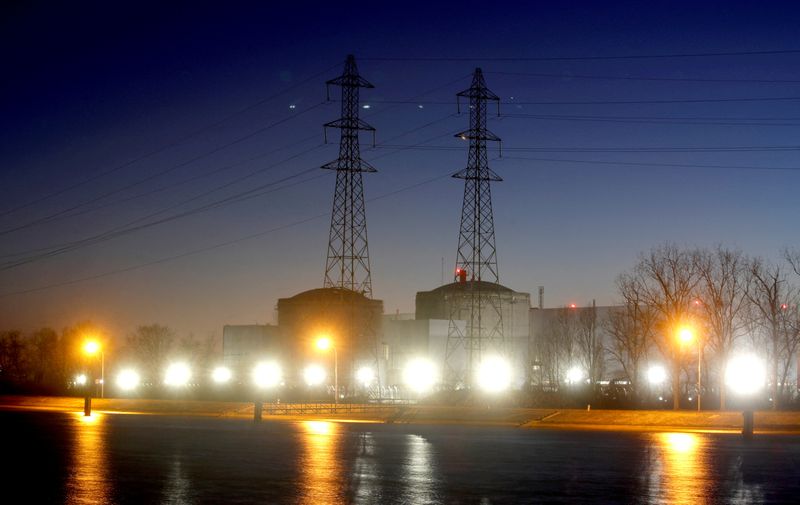By Kate Abnett
BRUSSELS (Reuters) - The European Union has drafted plans to nudge countries towards using more long-term, fixed-price electricity contracts, as part of a reform of Europe's power market designed to shield consumers from price spikes.
The European Commission is due to propose the reform on March 16, having pledged last year to reassess the electricity market rules after Russia cut gas supplies to Europe, leading to record-high energy prices and squeezed supply.
Here's what's in a draft of the EU proposal, seen by Reuters.
STABLE POWER PRICES
The aim of the reform is to leave consumers less exposed to short-term swings in fossil fuel prices, and make sure Europe's growing share of low-cost renewable electricity translates into lower bills.
Countries should do that by using more long-term contracts that lock in fixed electricity prices, according to the draft rules, which could still change before they are published.
If EU countries want to support new investments in wind, solar, geothermal, hydropower and nuclear electricity, for example, they would have to use a two-way contract for difference (CfD) or an equivalent contract to do this.
Two-way CfDs offer generators a fixed "strike price" for their electricity, regardless of the price in short-term energy markets. If the market price is above the CfD strike price, the extra revenue the generator receives would be handed out to final electricity consumers, the draft said.
Countries should also make it easier to sign power purchase agreements (PPA) - another type of long-term contract to directly buy electricity from a generator - such as by providing state guarantees to lower the risks for such contracts, it said. Fossil fuel-powered generators would not receive this support.
CUSHIONING CONSUMERS
The EU wants consumers to have better access to fixed-price electricity contracts, helping them to avoid tariffs that would expose them to volatile energy markets.
The draft proposal would give billpayers the right to request a fixed-price contract from any large electricity supplier. Currently, EU consumers only have the legal right to request a variable price contract.
The Commission also wants to give governments more powers to curb energy bills if they spike to extreme levels. If that happens, governments would be able to temporarily fix the price of up to 80% of consumers' and small businesses' electricity consumption.
That could help to standardise the emergency support countries provide in an energy crisis. EU governments have earmarked nearly 700 billion euros to shield households and companies from recent soaring energy costs - but the spending has been vastly uneven, with Europe's biggest economy Germany far outspending all other countries.
GREENER POWER MIX
The revamp comes as Europe is attempting to make its electricity system more flexible, to support the integration a growing share of renewable energy.
The draft rules would allow power network operators to pay market participants to use less electricity or use stored power during periods of peak demand.
Countries would need to set national targets for energy storage and demand side flexibility - where energy consumers get paid to increase, reduce or shift their energy use to help balance the grid.
The aim, the draft said, is to reduce the role that gas power plants currently play in balancing the EU's power supply, as countries shift away from fossil fuels.
DEEPER REFORM
The proposal is unlikely to please all EU countries, who disagree on how far the power market needs overhauling. EU countries and the European Parliament will negotiate and approve the reforms - a process that can take more than a year.
Spain, France and Greece are among those seeking a deeper reform, suggesting various routes to "decouple" gas and power prices and redesign Europe's current system of setting power prices.
Currently, power prices in Europe are set by the running cost of the plant that supplies the final chunk of power needed to meet overall demand. Often, that is a gas plant, so gas price spikes can send electricity prices soaring.

But the draft document suggests the Commission has chosen a route preferred by Germany, Denmark, Latvia and four other countries, who want only limited tweaks.
They say Europe's existing power market has fostered years of lower power prices and helped avoid energy shortages - and that drastic changes could scare off investors, putting at risk the hundreds of billions of euros in renewable energy investments Europe needs to meet climate goals.